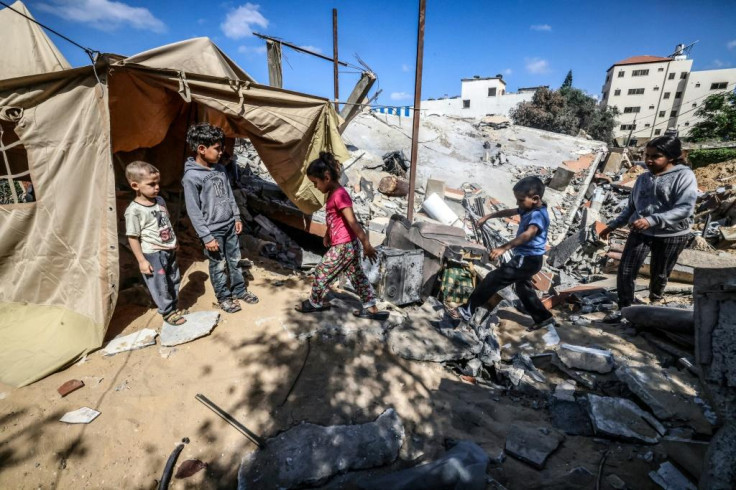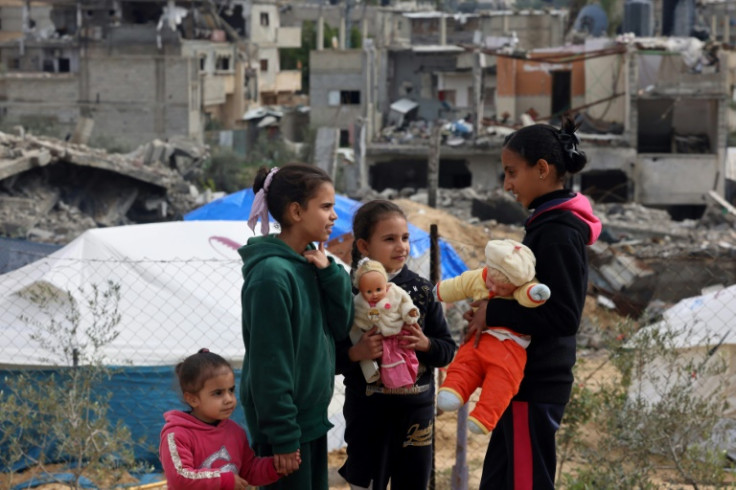UNICEF Estimate That More Than 17,000 Children Have Lost Their Parents In Gaza
As Israel vows to move towards Rafah, UNICEF says that more than 17,000 children have been left unaccompanied or separated from their parents in the Gaza Strip.

More than 17,000 Palestinian children have been left unaccompanied or separated from their parents in the Gaza Strip, the children's arm of the United Nations has estimated.
UNICEF (the Convention on the Rights of the Child) also reported that almost all of the children in the besieged enclave are in need of urgent mental health support.
The UN Children's Agency noted that the term 'unaccompanied' describes children who have been separated from their parents and are without any other extended family relations.
The term 'separated' defines children who are without their parents but in the company of other relatives, UNICEF clarified.
In just four months of fighting, according to the Hamas-run Health Ministry, Israel's relentless bombardment of Gaza has killed more than 27,000 Palestinians.
The bloody war has also displaced the vast majority of civilians and left 25 per cent of people facing starvation, data shows.
The restrictions on aid trucks entering the Palestinian territory have left more than 690,000 menstruating women and adolescent girls in severe period poverty and forced them to find replacement materials – including "parts of tents".
Around 40 per cent of Gaza's population were under the age of 18 at the time of Hamas' unprecedented massacre of Israelis on October 7, an earlier UNICEF report acknowledged.
"Almost every child in the Gaza Strip" has been exposed to extremely distressing events, the UNICEF report added.

Jonathan Crickx, UNICEF's Chief of Communication for the Palestinian territories, has since said that "almost all children are in need" of physical and mental support in Gaza.
"Each [child] has a heartbreaking story of loss and grief... That's more than one million children," he added.
Speaking from Jerusalem, Crickx went on to estimate that the number of children who have been pushed away from their parents, 17,000, "corresponds to 1 per cent of the overall displaced population – 1.7 million people".
The children have lost their caregivers and vital support network while they are forced to "come to terms with a horrible new reality", the Chief of Communications added.
Tracking and identifying the minors who have been forcibly abandoned by their guardians has proven "extremely difficult", Crickx said, explaining why children have been brought to hospitals for emergency care.
"They simply can't even say their names", he added.
While some children have been taken in by extended family members and close friends, the Chief of Communications revealed that "due to the sheer lack of food, water or shelter, extended families are themselves distressed and face challenges to immediately take care of another child as they themselves are struggling to cater for their own children and family".
A shocking report, published by Save the Children last year, exposed that more than 50 per cent of the children in Gaza had suicidal thoughts.
The report, which studied the lives and minds of Palestinian youngsters before October 7, also found that three in five of the children were already engaging in self-harm.
As Israel continues its ground offensive in Gaza, sieging Khan Younis and vowing to move towards Rafah, Crickx also said that the mental well-being of the children has been severely affected by the violence.
The Chief of Communications said he has seen "present symptoms like extremely high levels of persistent anxiety, loss of appetite, they can't sleep, they have emotional outbursts or panic every time they hear the bombings".
Referencing the traumas forced upon both Israeli and Palestinian children, Crickx recognised how "no child should ever be exposed to the level of violence seen on October 7 – or to the level of violence that we have witnessed since then".
"Children don't have anything to do with this conflict. Yet they are suffering like no child should ever suffer," he concluded.
© Copyright IBTimes 2024. All rights reserved.






